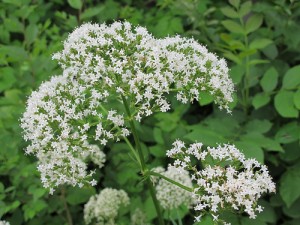
Photo courtesy of https://www.flickr.com/photos/aliarda/
I believe every parent is inherently hesitant to put a child on drugs that mess with the brain. It would seem that natural remedies for ADHD in children would be safer.
Our childrens’ brains undergo some incredible changes throughout the entire adolescent period. And when it comes to the brain, we know very little about the details. This is why I believe that drugs need to be the very, very last option. We have already seen a long list of natural approaches in the research that have demonstrated a benefit for behavioral problems in children. These include:
- Avoiding junk foods. These have been shown to contribute to behavioral problems in kids.
- Phosphatidylserine found in soy and brain supplements.
- Lithium (the natural kind, not the prescription).
- Getting a good night’s sleep (even just 27 extra minutes of sleep led to improvements in behavior).
- Healthy fats have a strong history of being good for all brain conditions.
The list is longer, but you at least get the idea. It is clear that natural approaches are not only safe, they are at least as effective as the medications used to attention and behavioral problems in children. More importantly, natural treatments for ADHD work WITH the brain, rather than against it.
This particular study adds another natural tool to the arsenal of natural treatments for ADHD. Our office has used a supplement containing valerian root, passionflora and hops (cleverly named VHP by Biotics) to successfully help patients with anxiety and sleep problems, so I am very comfortable with its use. This study uses a patented formula of valerian root and lemon balm (under the brand name Sandrin, which I was unable to find any additional information about). Here are the details on this 7 week-long study on 169 primary school children:
-
The children had hyperactivity and concentration difficulties but not did not meet ADHS criteria.
-
There was an impressive reduction in children having strong/very strong symptoms of poor ability to focus from 75% to 14%.
-
Hyperactivity ratings dropped from 61% to 13%.
-
Measures of impulsiveness dropped from 59% to 22%.
-
Parent rated social behavior, sleep and symptom burden also showed definite improvements.
-
Only two children experienced mild temporary adverse drug reactions.
Granted, the children in this study would not have been considered full-blown ADHD kids, but we really need to view this in perspective. The formulation clearly had an effect. Since the lifestyle changes noted earlier in this article work in different mechanisms, it would make sense that this formulation (or something like it) would be a strong tool in the complete natural approach for ADHD in children.
